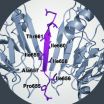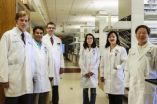New ESF-cofunded feasibility study calls for a single European researcher development framework
European Science Foundation has released a new report detailing its feasibility study on a pan-European professional development framework
2012-09-04
(Press-News.org) The aim of the study was to assess the applicability across Europe of a generic framework for the professional development of researchers based on the Vitae Researcher Development Framework (RDF). The RDF is a UK-context framework set up with the purpose to better define researcher's professional profiles and to develop guidance for the continuous professional development of researchers. The report reveals that there is a real demand among researchers for a more structured approach towards researcher´s professional development and active career planning.
This new ESF-co-funded study, with its members from the ESF MO Forum on Research Career Development, has applied the existing Vitae Researcher Development Framework in Europe. The RDF has been designed for:
researchers to evaluate and plan their own personal, professional and career development
principal investigators and supervisors of researchers in their role supporting the development of researchers
trainers, developers, human resources specialists and careers advisors in the planning and provision of support for researchers' development
employers to provide an understanding of the blend of skills unique to researchers and their potential as employees
The testing of the RDF in different European settings gave encouraging results in overcoming some of the identified deficiencies and in progressing towards a shared understanding of the skills and attributes that characterise modern researchers. Furthermore, the RDF proved to be a solid basis for making researchers reflect on their skills and attributes and on their career aspirations in general. It provides an important potential to support the professional development of researchers in any national or institutional environment.
The report detailed that there are big differences between countries in their overall awareness and readiness to engage and invest into the general development and career development of researchers. However, there is a real demand among researchers for a more structured approach towards researcher´s professional development and active career planning.
The report contains five key recommendations:
The creation of a European Researcher Development Framework would provide a single European language describing researchers' skills and attributes and thereby facilitate mobility.
(EU Level) The European Commission should consider investing in making available a pan-European Researcher Development Framework to promote the importance of the professional development of European researchers
The European Commission should support a wider independent trial of the RDF
(national and institution level) Governments, research funders and research performing organisations should work together to offer researchers at all career levels adequate training and development means
(individual researcher) Researchers across Europe should take responsibility for their own professional development and reflect how to improve their own career possibility by using for example using a tool like the suggested European Research Development Framework
Commenting on the study, Martin Hynes, CEO, European Science Foundation said: "The continued progress of the European Research Area and more acutely the development of researchers has always been top priority for us. This new study has revealed that within Europe there is a clear need for a European Researcher Development Framework which can aid researcher´s professional development. The adoption of the RDF, adapted as recommended in the report, would also be a great tool for supporting intersectoral mobility".
Martin continued: "This project has been an important first step in identifying the potential opportunity of creating a pan-European professional development framework"
Janet Metcalfe, Chair and Head of Vitae commented "The adoption of the Vitae Researcher Development Framework across Europe would support the aims of the European Charter and Code, specifically the principles relating to continuous professional development, career development, access to research training and continuous development and access to careers advice. It would also provide a common language for researchers to talk about their expertise and professional development."
###
Notes to editors
For more information, please contact
Emma Knott, Kaizo
+44 (0) 207 3176 4715
esf[at]kaizo.net
About ESF
The European Science Foundation (ESF) is an independent, non-governmental organisation that promotes collaboration in scientific research, funding of research and science policy across Europe. Its members are 72 national funding and research-performing organisations and learned societies from 30 countries. www.esf.org
ELSE PRESS RELEASES FROM THIS DATE:
2012-09-04
HEIDELBERG, 3 September 2012 – Scientists from the United States and Sweden have discovered a new control point that could be important as a drug target for the treatment of diabetes and other metabolic diseases. A-kinase anchoring proteins or AKAPs are known to influence the spatial distribution of kinases within the cell, crucial enzymes that control important molecular events related to the regulation of glucose levels in the blood. In a new study published in The EMBO Journal, the team of researchers led by Simon Hinke and John Scott reveal for the first time that AKAPs ...
2012-09-04
A centralized prescription network providing real-time information to pharmacists in British Columbia, Canada, resulted in dramatic reductions in inappropriate prescriptions for opioid analgesics and benzodiazepines, widely used and potentially addictive drugs. The findings are reported in a study in CMAJ (Canadian Medical Association Journal).
The study found that PharmaNet, a real-time prescription system implemented in BC pharmacies in July 1995, reduced potentially inappropriate prescriptions for opioids and benzodiazepines in two groups of patients — those on social ...
2012-09-04
To promote good parenting, Canada should remove section 43 of its Criminal Code because it sends the wrong message that using physical punishment to discipline children is acceptable, argues Dr. John Fletcher, Editor-in-Chief, CMAJ (Canadian Medical Association Journal) in an editorial.
Section 43 of the Criminal Code of Canada states "…a parent is justified in using force by way of correction…if the force does not exceed what is reasonable under the circumstances."
The debate over whether spanking children is acceptable as a disciplinary tool for parents or whether ...
2012-09-04
Tumor growth is dependent on interactions between cancer cells and adjacent normal tissue, or stroma. Stromal cells can stimulate the growth of tumor cells; however it is unclear if tumor cells can influence the stroma. In the September issue of the Journal of Clinical Investigation, researchers at MD Anderson Cancer Center report that ovarian cancer cells activate the HOXA9 gene to compel stromal cells to create an environment that supports tumor growth.
Honami Naora and colleagues found that expression of HOXA9 was correlated with poor outcomes in cancer patients and ...
2012-09-04
Ovarian cancer cells hijack surrounding tissues to enhance tumor growth
Tumor growth is dependent on interactions between cancer cells and adjacent normal tissue, or stroma. Stromal cells can stimulate the growth of tumor cells; however it is unclear if tumor cells can influence the stroma. In this issue of the Journal of Clinical Investigation, researchers at MD Anderson Cancer Center report that ovarian cancer cells activate the HOXA9 gene to compel stromal cells to create an environment that supports tumor growth.
Honami Naora and colleagues found that expression ...
2012-09-04
Alexandria, VA – "Warm" and "Antarctica" are not commonly used in the same sentence; however, for scientists, "warm" is a relative term. A team of researchers has discovered that, contrary to previous thinking, the Antarctic continent has experienced periods of warmth since the onset of its most recent glaciation.
Lodged in ocean sediment nearly 20 million years old, ancient pollen and leaf wax samples taken from the Ross Ice Shelf suggest that two brief warming spells, each of which lasted less than 30,000 years, punctuated the omnipresent cold of Antarctica. Warm, ...
2012-09-04
A study led by researchers at the UC San Diego Stem Cell Research program and funded by the California Institute for Regenerative Medicine (CIRM) looks at an important RNA binding protein called LIN28, which is implicated in pluripotency and reprogramming as well as in cancer and other diseases. According to the researchers, their study – published in the September 6 online issue of Molecular Cell – will change how scientists view this protein and its impact on human disease.
Studying embryonic stem cells and somatic cells stably expressing LIN28, the researchers defined ...
2012-09-04
An interdisciplinary team of researchers at Vanderbilt University have developed a way to combine the photosynthetic protein that converts light into electrochemical energy in spinach with silicon, the material used in solar cells, in a fashion that produces substantially more electrical current than has been reported by previous "biohybrid" solar cells.
The research was reported online on Sep. 4 in the journal Advanced Materials and Vanderbilt has applied for a patent on the combination.
"This combination produces current levels almost 1,000 times higher than we were ...
2012-09-04
LEXINGTON, Ky. (Sept. 4, 2012) — A new study by University of Kentucky researchers shows promise for developing ultrastable RNA nanoparticles that may help treat cancer and viral infections by regulating cell function and binding to cancers without harming surrounding tissue.
The study, published in Nano Today, was carried out in the laboratory of Peixuan Guo, the William S. Farish Endowed Chair in Nanobiotechnology at the UK Markey Cancer Center, in collaboration with Dr. Mark Evers, director of the UK Markey Cancer Center.
The study uses RNA (ribonucleic acid) as ...
2012-09-04
Vienna, Austria: Sleep apnoea severity has been associated with increased cancer mortality in a new study.
The research, which will be presented today (Tuesday 4 September 2012) at the European Respiratory Society's (ERS) Annual Congress in Vienna, adds to evidence presented earlier this year highlighting a link between severe sleep apnoea and cancer.
Two further studies presented at the ERS Congress, also show evidence suggesting an increase in cancer incidence among sleep apnoea patients and an association between the spread of cancer and sleep apnoea.
In the first ...
LAST 30 PRESS RELEASES:
[Press-News.org] New ESF-cofunded feasibility study calls for a single European researcher development framework
European Science Foundation has released a new report detailing its feasibility study on a pan-European professional development framework



